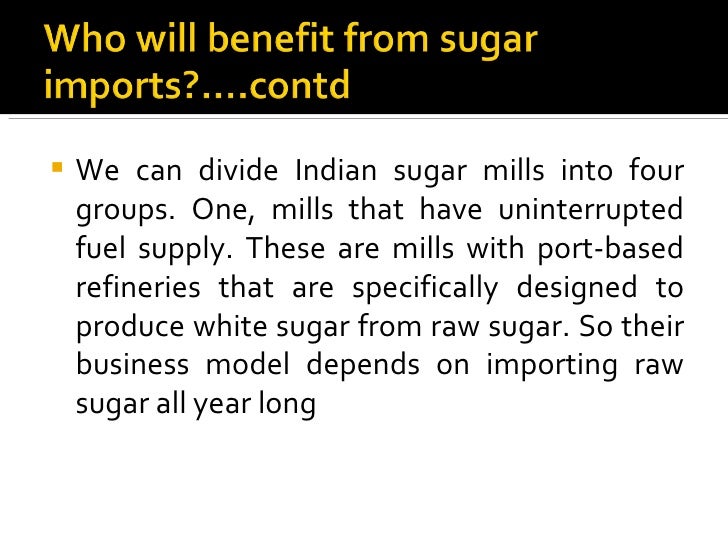
In the light of these policy changes and the likelihood of cheaper beet sugar flooding the European market, cane farmers from ACP countries face an uncertain future. But this is all set to change in 2017, when changes to the EU Common Agricultural Policy mean that this preferential treatment will end, potentially closing the EU as a market for cane sugar from ACP countries. Read more about why small-scale sugar farmers need support (pdf).įor more than 30 years, under the EU sugar regime, cane producers from the African, Caribbean and Pacific group of countries (ACP) and Least Developed Countries (LDCs) were able to sell cane to the EU market via quotas with guaranteed high payments, equal to those paid to EU beet producers. This also means that cane producers do not receive the support they need in meeting the challenges of new market conditions, including access to funding to invest in improving productivity (such as fertiliser and transport), agricultural training, and new and improved technology. This affects the entire community, as sugar cane farmers often rely heavily on their families for help, limiting people’s opportunities for education and perpetuating the cycle of poverty. The price that small-scale farmers receive for cane can fail to cover the costs they incur to produce it, leaving them in a debt trap and with little capital to reinvest in farms. These force them into competition with more powerful, wealthy countries that have greater financial resources to dedicate to sugar production and greater political power to subsidise and promote their sugar industries. Traditionally, the international trade laws that govern sugar imports have made it difficult for small-scale farmers to access the more lucrative markets of Europe and North America.

The global sugar industry is vast and complex and small-scale farmers who need to sell their cane sugar often struggle to influence this trade. In general, the costs of producing sugar from sugar cane are lower than for sugar beet. The remaining 20 per cent of the world’s sugar supply comes from sugar beet – a root crop resembling a large parsnip, grown mainly in the temperate zones in the North. Why small-scale cane farmers need supportĪround 80 per cent of the world’s sugar is derived from sugar cane, grown by millions of small-scale farmers and workers in Africa, Asia, Latin America and Oceania. Sugar cane is a tall, bamboo-like grass that grows to a height of 6m (20ft) and is largely grown in tropical countries. When consumed in moderation, sugar can provide some of life’s great pleasures. Sugar is an integral part of diets and lives.

Screening, immunization, and prevention (adult). Screening, immunization, and prevention (child). What is sleep apnea? National Heart, Lung, and Blood Institute.How does sleep affect your heart health? Centers for Disease Control and Prevention.Physical Activity Guidelines for Americans.Centers for Disease Control and Prevention. National Heart, Lung, and Blood Institute.

#60 minutes sugar story how to
How to prevent heart disease at any age.Overview of primary prevention of coronary heart disease and stroke. Primary prevention of ischaemic heart disease: Populations, individuals, and health professionals. Make sure to take your medications as your health care provider prescribes and follow a healthy-lifestyle plan. If you have a condition such as high cholesterol, high blood pressure or diabetes, your health care provider may prescribe medications and recommend lifestyle changes. If not, screening is recommended beginning at age 45, with retesting every three years. If you have risk factors for diabetes, such as being overweight or having a family history of diabetes, your health care provider may recommend early screening. Diabetes is a risk factor for heart disease. Cholesterol screening usually starts at age 20, though earlier testing may be recommended if you have other risk factors, such as a family history of early-onset heart disease. Adults generally have their cholesterol measured at least once every four to six years. People age 40 and older also are given a blood pressure test yearly.

If you're between 18 and 39 and have risk factors for high blood pressure, you'll likely be screened once a year.


 0 kommentar(er)
0 kommentar(er)
